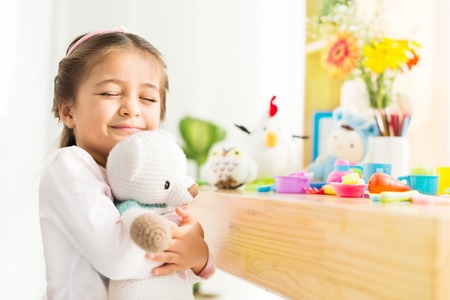
Do you have a child that, wherever they go, always seems to be carrying around their favorite stuffed animal? While the image is certainly cute, it may leave you wondering if this level of attachment is healthy for your child. The short answer is, yes, it’s perfectly healthy, but if you want to learn more, then read on to see how stuffed animals truly affect our children.
Children are less shy
Stuffed animals are seen as comfort objects, and studies have proven that comfort objects and “imaginary companions” can actually make children feel less shy and more focused. There are two reasons for this. Stuffed animals, acting as comfort objects, can make children feel braver in potentially stressful environments. It’s why firefighters and police officers often give children stuffed animals after a traumatic incident. Children can also practice their social skills on stuffed animals, reading them stories and playing with them just as they would with other children.
They can even help adults
Maybe your child is all grown up, and while they don’t carry their stuffed animal wherever they go, they still keep it by their bed at night. Some people believe this is abnormal, and that adults who still have stuffed animals should “grow up.” However, having a stuffed animal by your side can be helpful, easing anxiety, stress, and loneliness. Not to mention that about 40% of American adults still sleep with their stuffed animal, so you’re not alone.
Emotional attachments to our stuffed animals are perfectly healthy, no matter your age. So, whether you’re looking for a stuffed animal for yourself or for someone special in your life, take a look through our inventory here at The Zoo Factory to get started!